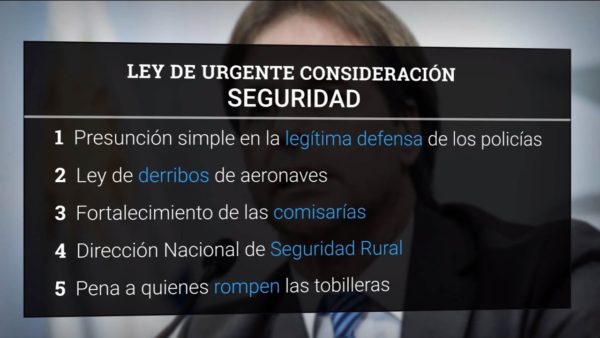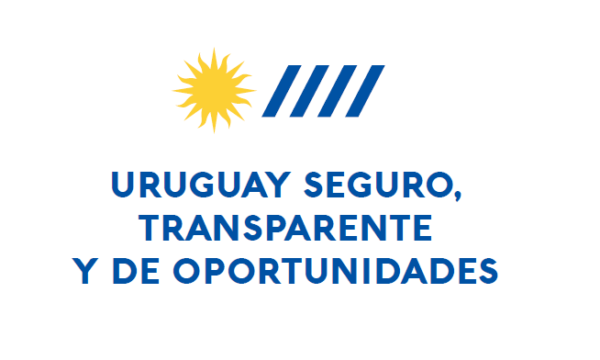Often singled out as an oasis of good governance and welfare in an underperforming region, Uruguay is nevertheless no stranger to economic strife. Almost two decades ago, a banking crisis and severe economic contraction turned the winter of 2002 into a moment of desperation for many Uruguayans. In one of the worst economic crises faced by the country, citizens had nowhere to turn for food, and there was a surge in organised food provision by neighbourhood mutual aid, political organisations, churches and other groups. Ollas populares, as these informal food banks are known, are a symbol of these periods of desperation in vulnerable sectors of society.
Covid-19 has marked the return of the ollas populares. In the upmarket Parque Rodo, bookshop owner Jorge Artola keeps the shop open after hours to feed neighbours in need, who can also take a book if they wish. The bookshop serves about 100 meals on Tuesdays and Thursdays. The newly founded Canastas.uy, which started out with a group of friends wishing to pitch in to buy food baskets for needy people during the health crisis, has to date served over eight million meals throughout the pandemic. Labour unions, social centres and churches have also set up food scarcity operations, some increasing their ongoing provision to meet new demand, and others returning from scratch to match the level of services offered in 2002.
This resurgence of ollas populares is not a result of poor handling of the Covid-19 pandemic, but rather, despite it. Uruguay has been lauded across the world for its successful management of the pandemic, which has allowed the country to avoid mandatory lockdowns, keep case transmissions low and ICU beds available. Structural factors, such as a strong social security net, universal healthcare, high trust in political institutions, and a low density of population, have contributed to Uruguay’s success. This was helped by the government’s alternative approach, which differed from that taken by its neighbours – Uruguay listened to scientists early on and moved fast. On 13 March 2020, it declared a health emergency after registering its first case, closed off international travel, and set up a rigorous testing and tracking regime.
This fast action is perhaps even more surprising given its context. President Luis Lacalle Pou had been in office for just two weeks before the pandemic hit Uruguay. After three consecutive periods of the left-wing Frente Amplio rule, the right is back in power in the shape of a five-party coalition supporting a centre-right Partido Nacional president. Fast and coordinated movement across legislative and executive branches of government comes just as these offices are settling into new leadership. Amidst worrying signs of economic downturn, such as lower productivity across many sectors, increased need for social welfare support and the aforementioned food security issues, the new government has faced criticism for its decision to go ahead with the planned fiscal adjustment that Lacalle Pou promised when campaigning. The pandemic, however, has given the government a perfect opportunity to capitalise on high approval ratings for the administration. Whilst Uruguay’s strong labour movements are unable to organise due to the health situation, it’s easier for the government to rapidly pass through congress a broad law package dubbed “the Law for Urgent Consideration” (Ley de Urgente Consideración, or LUC) (see Lopez Burián & Hernández Nilson, forthcoming in LAP).
The LUC, as some have pointed out, signals a stark change in direction towards a more neoliberal model. Despite the economic downturn, the government is confident it can save even more than it originally proposed by capping spending in several sectors and deregulating certain aspects of the economy. To the displeasure of several political figures, not least the president, Uruguay has been named by the ECLAC as one of the Latin American countries which spent the least to redress the consequences of the pandemic. Some have argued that by capping spending on areas such as public research, the president is limiting the capacity of the very attributes that led to current success.
 The new “Ley de Urgente Consideración” (LUC) sets out to cap spending in several key sectors.
The new “Ley de Urgente Consideración” (LUC) sets out to cap spending in several key sectors.
Alongside the approved LUC, which laid the legislative ground for these adjustment measures, the executive branch has this week presented its budget for approval by congress, a weeks-long process involving opportunities to make changes and challenge decision making. Facing a coalition that has until now held despite some doubts and internal controversies, the Frente Amplio’s main challenge will be to mount successful opposition to the budget. The Frente Amplio is, however, not at its strongest. It is facing difficulties: questions about its loss of power in the 2019 elections, strong internal competition over the leadership of Montevideo (a Frente Amplio stronghold since the 90s), and – most recently – a controversy regarding previous Frente Amplio governments’ approach to the prosecution and investigation of crimes during the military dictatorship.
With a popular president, successful management of the pandemic, and a weakened opposition, the new turn to a more neoliberal approach is all but a done deal. Uruguay still has a relatively broad consensus on state policy and the active role of the state in the economy, which means that changes in the direction of the economic model often prove to be more easily accepted than originally expected. As a small country highly dependent on the economic health of its neighbours and the broader global economy, the future of Uruguay’s economy and hence its vulnerable sectors remain to be seen. However, unlike countries (not least the UK) where the pandemic has drastically changed political dynamics and the economic approaches of those in office, it is safe to expect the new government to stick to its relative economic conservatism as espoused in the 2019 electoral campaign.
This article was first published by Latin American Bureau. For more great articles visit www.lab.org.uk
















